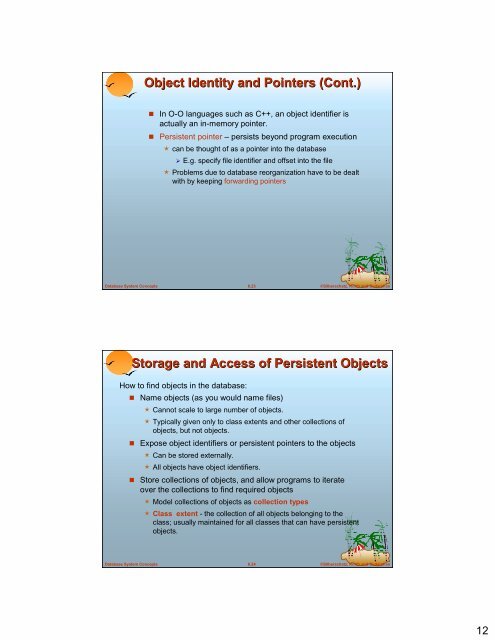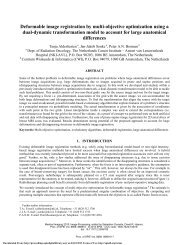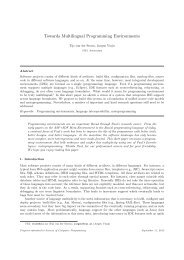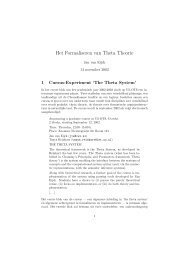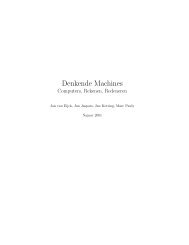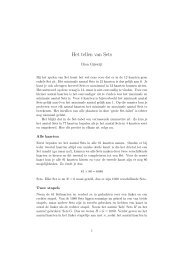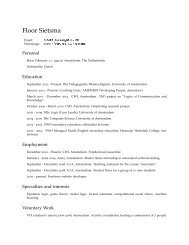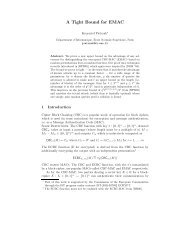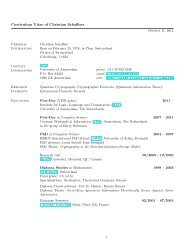Object-Oriented Databases Need for Complex Data Types - CWI
Object-Oriented Databases Need for Complex Data Types - CWI
Object-Oriented Databases Need for Complex Data Types - CWI
You also want an ePaper? Increase the reach of your titles
YUMPU automatically turns print PDFs into web optimized ePapers that Google loves.
<strong>Data</strong>base System Concepts<br />
<strong>Data</strong>base System Concepts<br />
<strong>Object</strong> Identity and Pointers (Cont.)<br />
In O-O languages such as C++, an object identifier is<br />
actually an in-memory pointer.<br />
Persistent pointer – persists beyond program execution<br />
can be thought of as a pointer into the database<br />
E.g. specify file identifier and offset into the file<br />
Problems due to database reorganization have to be dealt<br />
with by keeping <strong>for</strong>warding pointers<br />
8.23<br />
8.24<br />
©Silberschatz, Korth and Sudarshan<br />
Storage and Access of Persistent <strong>Object</strong>s<br />
How to find objects in the database:<br />
Name objects (as you would name files)<br />
Cannot scale to large number of objects.<br />
Typically given only to class extents and other collections of<br />
objects, but not objects.<br />
Expose object identifiers or persistent pointers to the objects<br />
Can be stored externally.<br />
All objects have object identifiers.<br />
Store collections of objects, and allow programs to iterate<br />
over the collections to find required objects<br />
Model collections of objects as collection types<br />
Class extent - the collection of all objects belonging to the<br />
class; usually maintained <strong>for</strong> all classes that can have persistent<br />
objects.<br />
©Silberschatz, Korth and Sudarshan<br />
12


